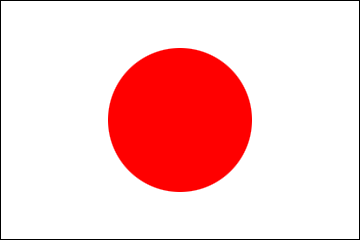Kizuna 9:Memory - Photo Exhibition Digital Experience
Kizuna 9 Event Postponement and Digital Exhibition Announcement
For the 9th year in a row, the Kizuna Project exhibitions have taken place in Chicago in order to honor the lives that were lost during the 2011 Great East Japan Earthquake—more commonly known as 3.11—and to learn more about the surviving residents of the region and their efforts to rebuild and revitalize their communities.
We are eternally grateful for the outpouring of love and support from the United States and especially you, our neighbors here in the Midwest. It is our strong wish that, through preserving the memory of 3.11, we may also preserve and strengthen the kizuna, or bonds, that connect our two countries.
We regret to announce that, due to concerns about COVID-19 and in the interest of our attendees' health, the March 15 Kizuna 9 Commemoration and March 18 Economic Seminar events have been postponed. When the events are rescheduled, we will announce them at a later date. We apologize and appreciate your understanding.
Our Kizuna 9 Photo Exhibition at the Japan Information Center, however, is still underway until March 27. In addition, we have the photos and texts compiled into a PDF document, allowing anyone to view the exhibition “digitally” from the comfort and safety of their homes.
Chicago Sister Cities International also has compiled a collection of photos from the exhibition on their website for your viewing.
Photos by Kiyotaka Shishido
Produced by the Osaka Committee of Chicago Sister Cities International
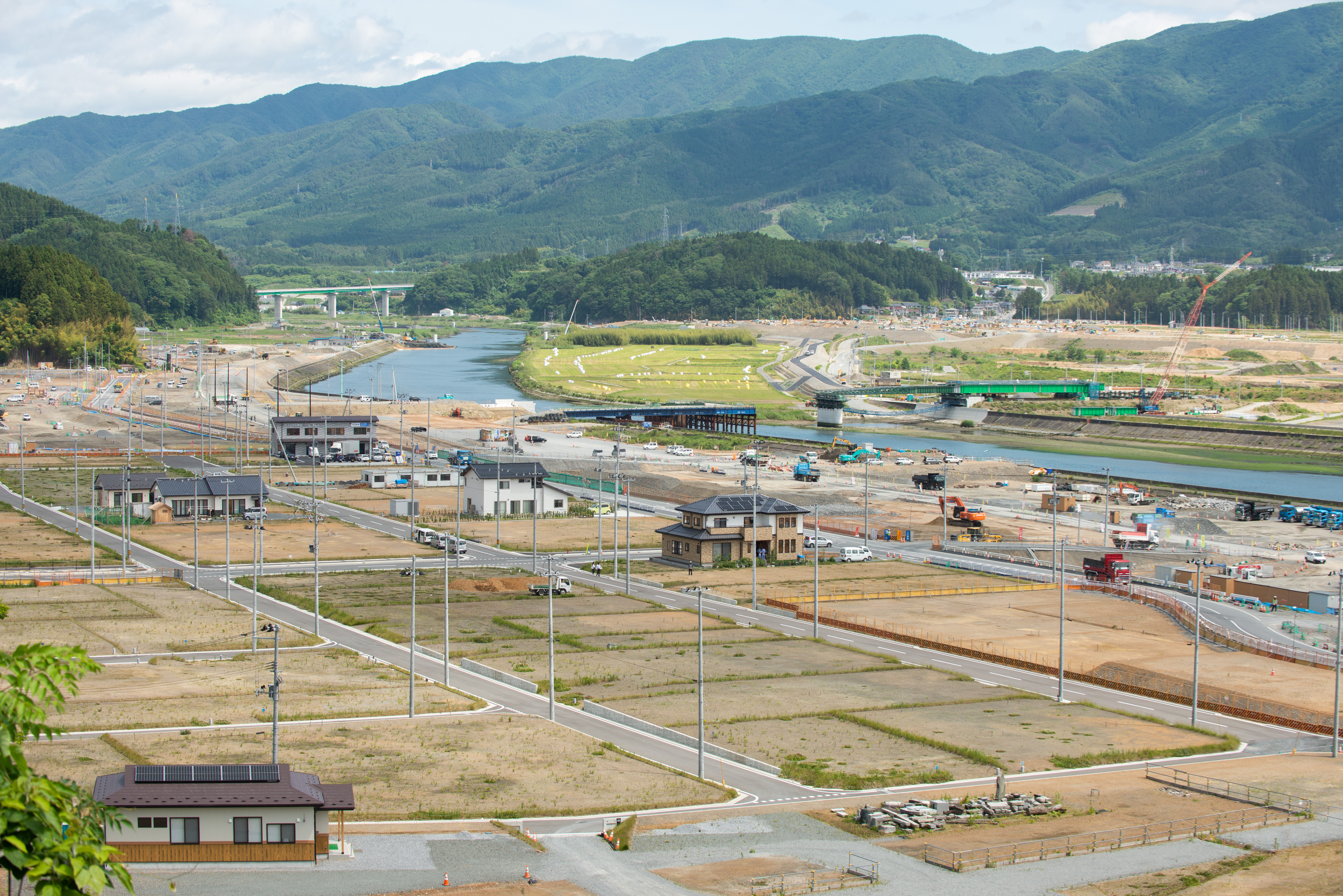 |
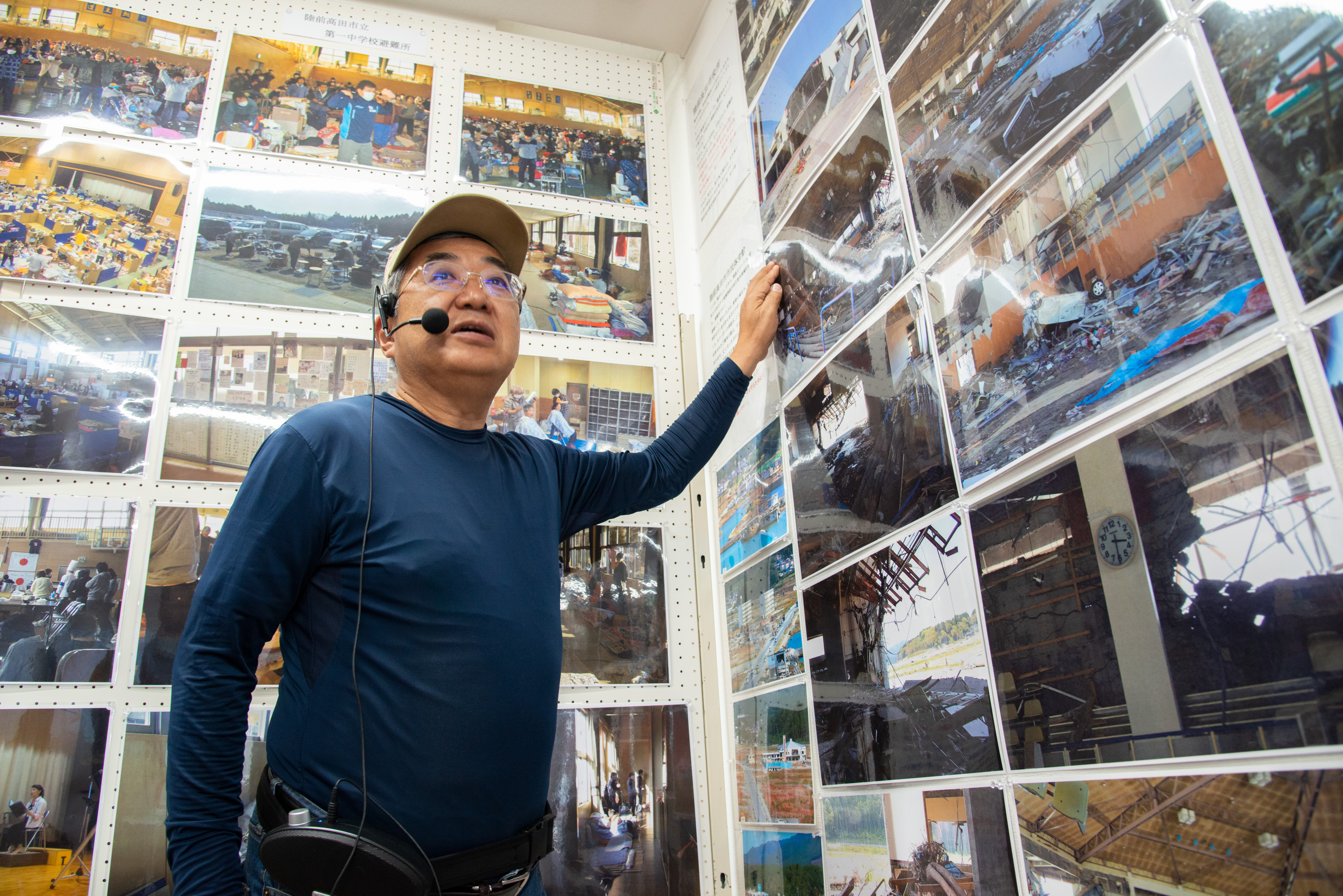 |
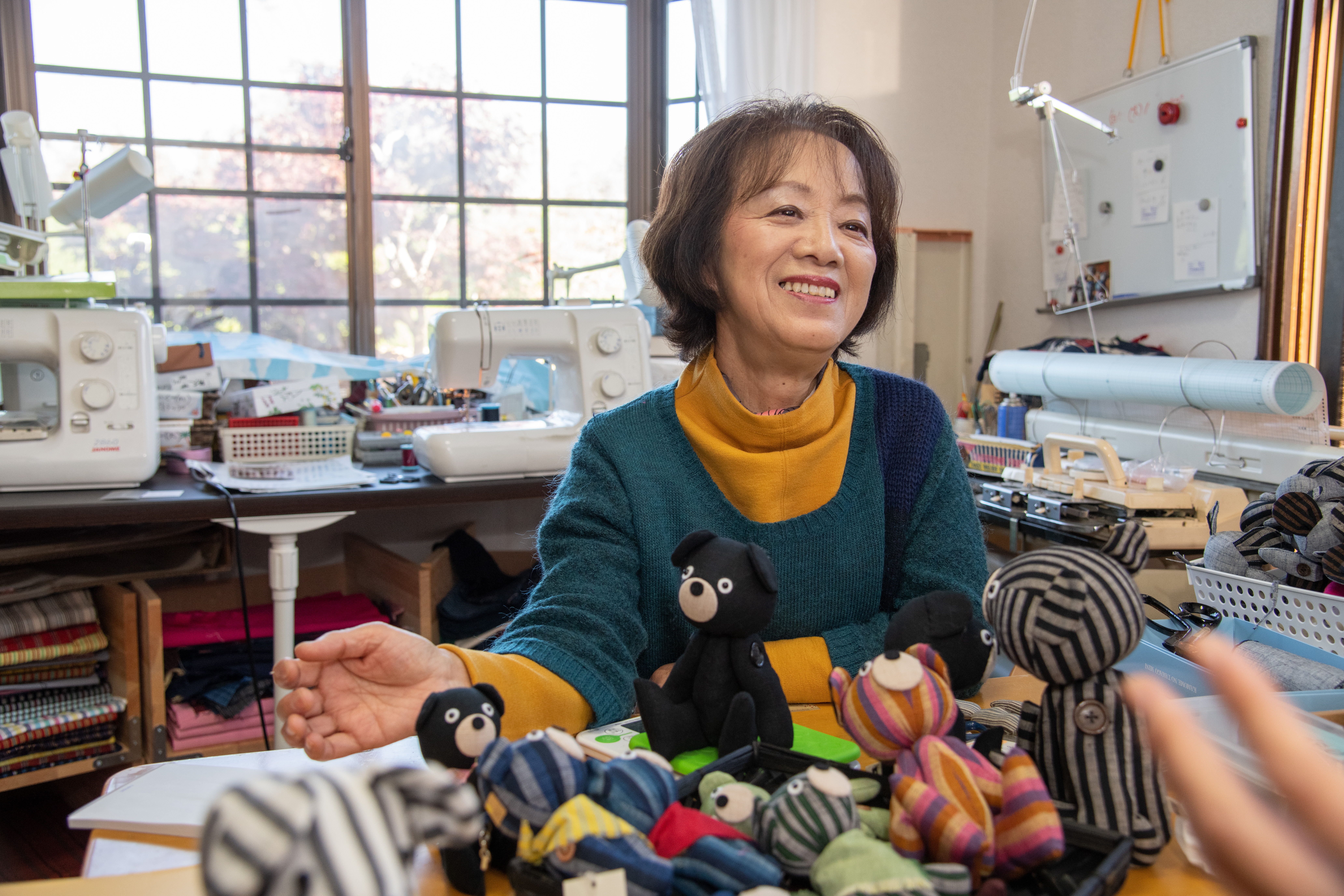 |
| The city center of Rikuzentakata rests on ten meters of new ground. As a preventative measure against future tsunami events, the local government used rock fill to raise parts of the city. While safer, it has also changed the city’s appearance. | Akira Kugiko, a 3.11 survivor and full time katari-be (storyteller), shows visitors pictures of wreckage from the disaster. | Entrepreneur Yauko Shuji, owner of the Aiku Workshop, sits among the machines and trademark Aiku bears at her workstation. |
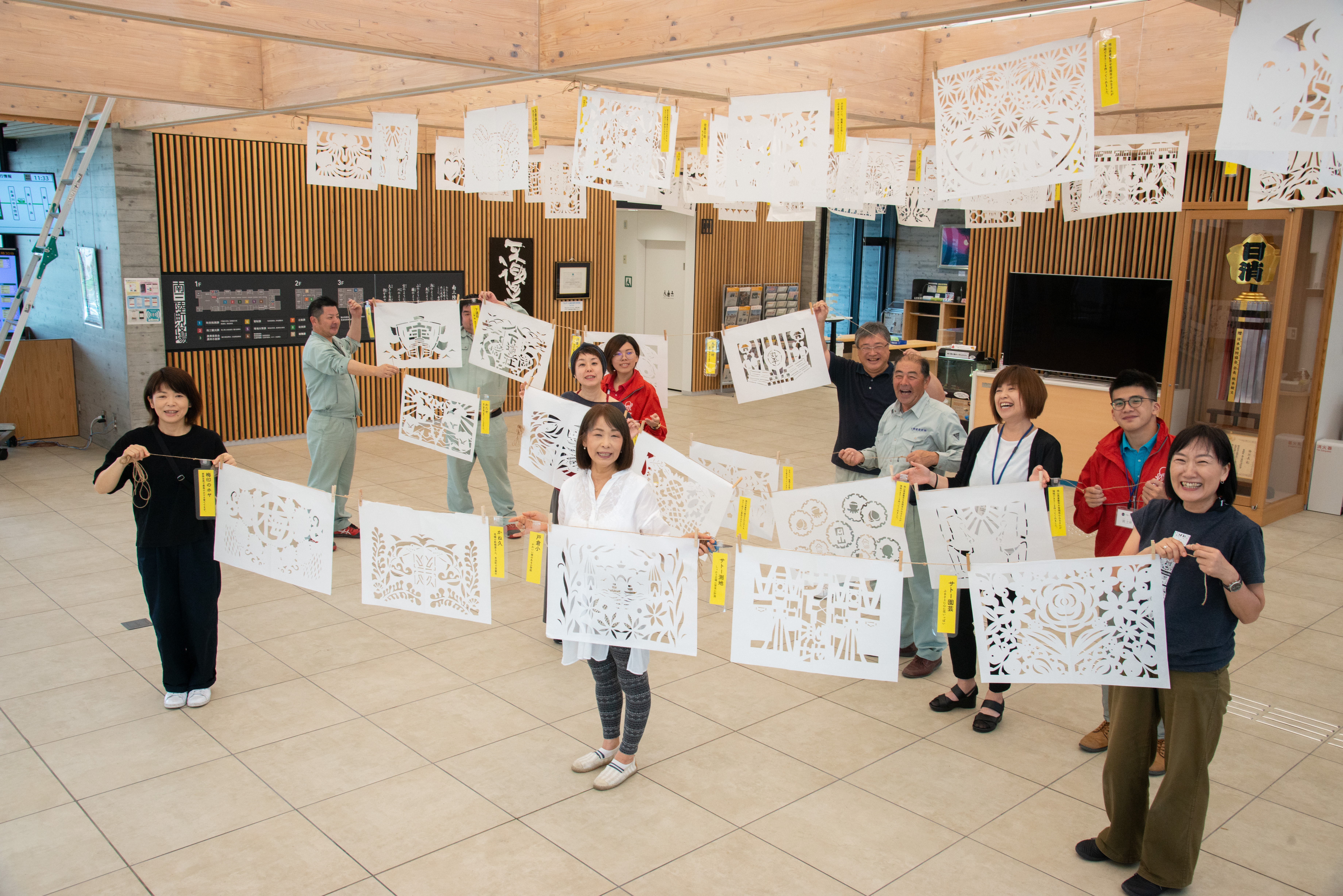 |
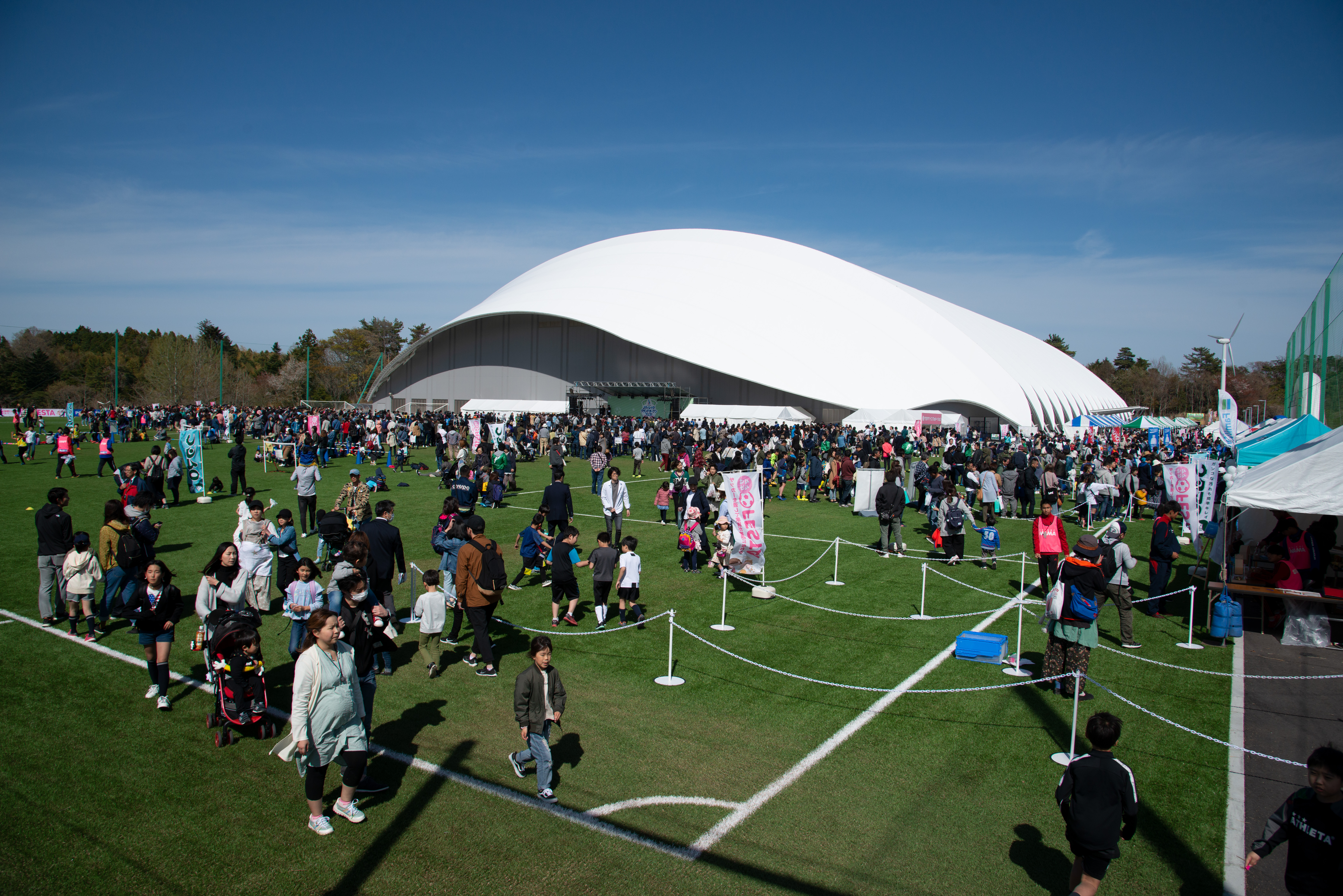 |
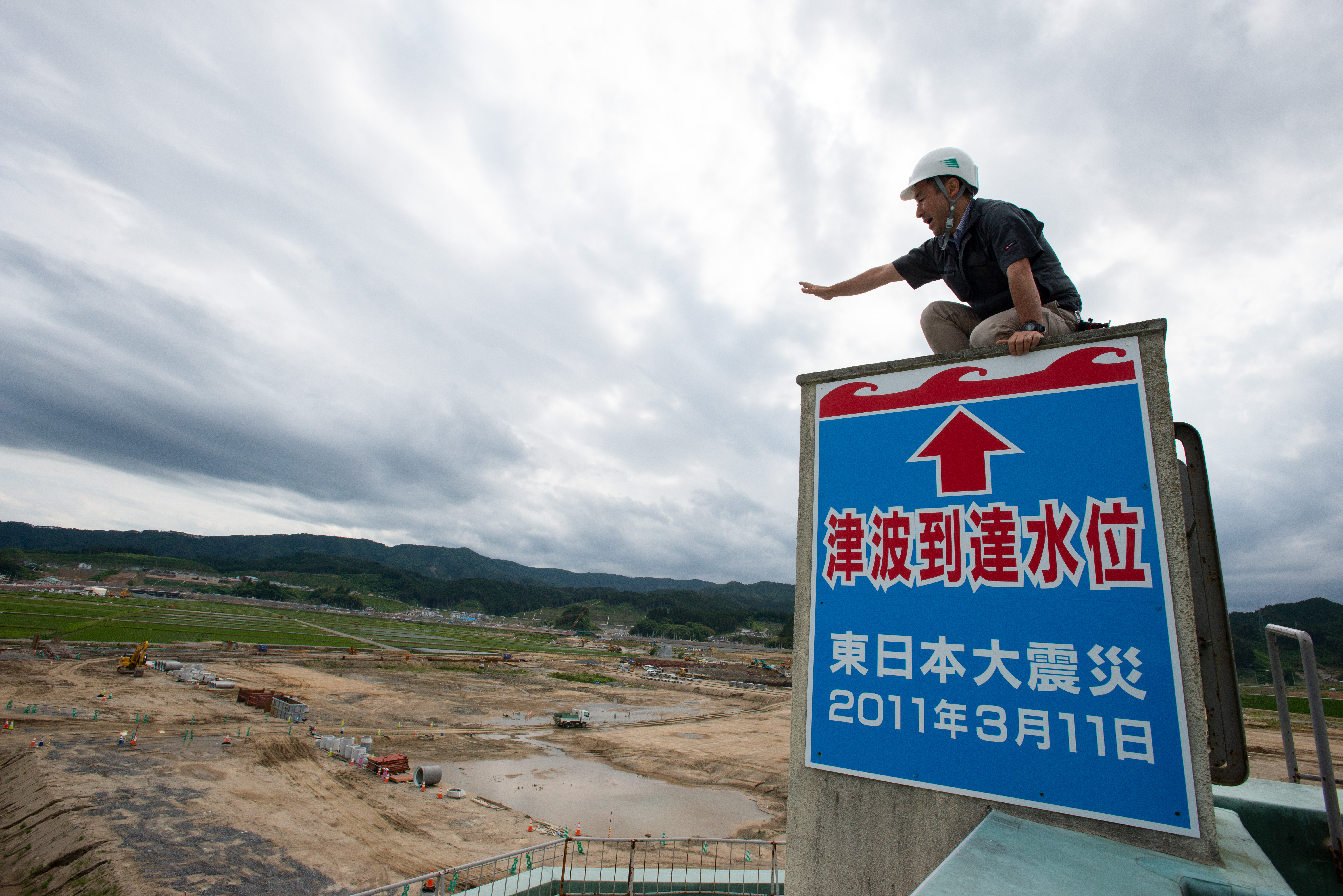 |
| Participants at Yumi Yoshikawa’s Da-Ha Planning company show the kiriko designs they made as part of a community building art initiative. | Originally opened in 1997 as the first national soccer training ground, J-Village in Naraha, Fukushima Prefecture was closed due to the Fukushima Dai-ichi Nuclear Power Plant accident on 3.11. It was recently reopened in April 2019. | Yuichi Yonezawa sits on the chimney of his family’s store to reenact his method of surviving the 3.11 disaster. |
